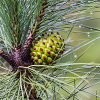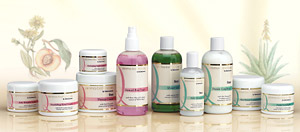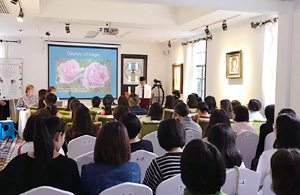Essential Oils Effectively Treats Postoperative Nausea
 Postoperative nausea (PON) is a common complication of anesthesia and surgery. Antiemetic medication for higher-risk patients may reduce but does not reliably prevent PON. We examined aromatherapy as a treatment for patients experiencing PON after ambulatory surgery.
Postoperative nausea (PON) is a common complication of anesthesia and surgery. Antiemetic medication for higher-risk patients may reduce but does not reliably prevent PON. We examined aromatherapy as a treatment for patients experiencing PON after ambulatory surgery.
Our primary hypothesis was that in comparison with inhaling a placebo, PON will be reduced significantly by aromatherapy with (1) ginger essential oil, (2) a blend of essential oils of ginger, spearmint, peppermint, and cardamom, or (3) isopropyl alcohol. Our secondary hypothesis was that the effectiveness of aromatherapy will depend upon the agent used.
Methods
A randomized trial of aromatherapy with patients who reported nausea in the postanesthesia care unit was conducted at one ambulatory surgical center. Eligibility criteria were adult, able to give consent, and no history of coagulation problems or allergy to the aromatherapy agents. Before surgery, demographic and risk factors were collected. Patients with a nausea level of 1 to 3 on a verbal descriptive scale (0–3) received a gauze pad saturated with a randomly chosen aromatherapy agent and were told to inhale deeply 3 times; nausea (0–3) was then measured again in 5 minutes. Prophylactic and postnausea antiemetics were given as ordered by physicians or as requested by the patient.
Results
A total of 1151 subjects were screened for inclusion; 303 subjects reporting nausea were enrolled (26.3%), and 301 meeting protocol were analyzed (26.2%). The change in nausea level was significant for the blend (P < 0.001) and ginger essential oil (P = 0.002) versus saline but not for alcohol (P < 0.76). The number of antiemetic medications requested after aromatherapy was also significantly reduced with ginger essential oil or blended oils versus saline (P = 0.002 and P < 0.001, respectively).
Conclusion
The hypothesis that aromatherapy would be effective as a treatment for PON was supported. On the basis of our results, future research further evaluating essential oils and aromatherapy is warranted. Aromatherapy is promising as an inexpensive, noninvasive treatment for PON that can be administered and controlled by patients as needed.
Copyright © 2011; Ronald Hunt MD, Jacqueline Dienemann PhD, RN, H.James Norton PhD, Wendy Hartley MSN, RN, Amanda Hudgens BSN, RN, Thomas Stern MD, George Divine PhD.






























